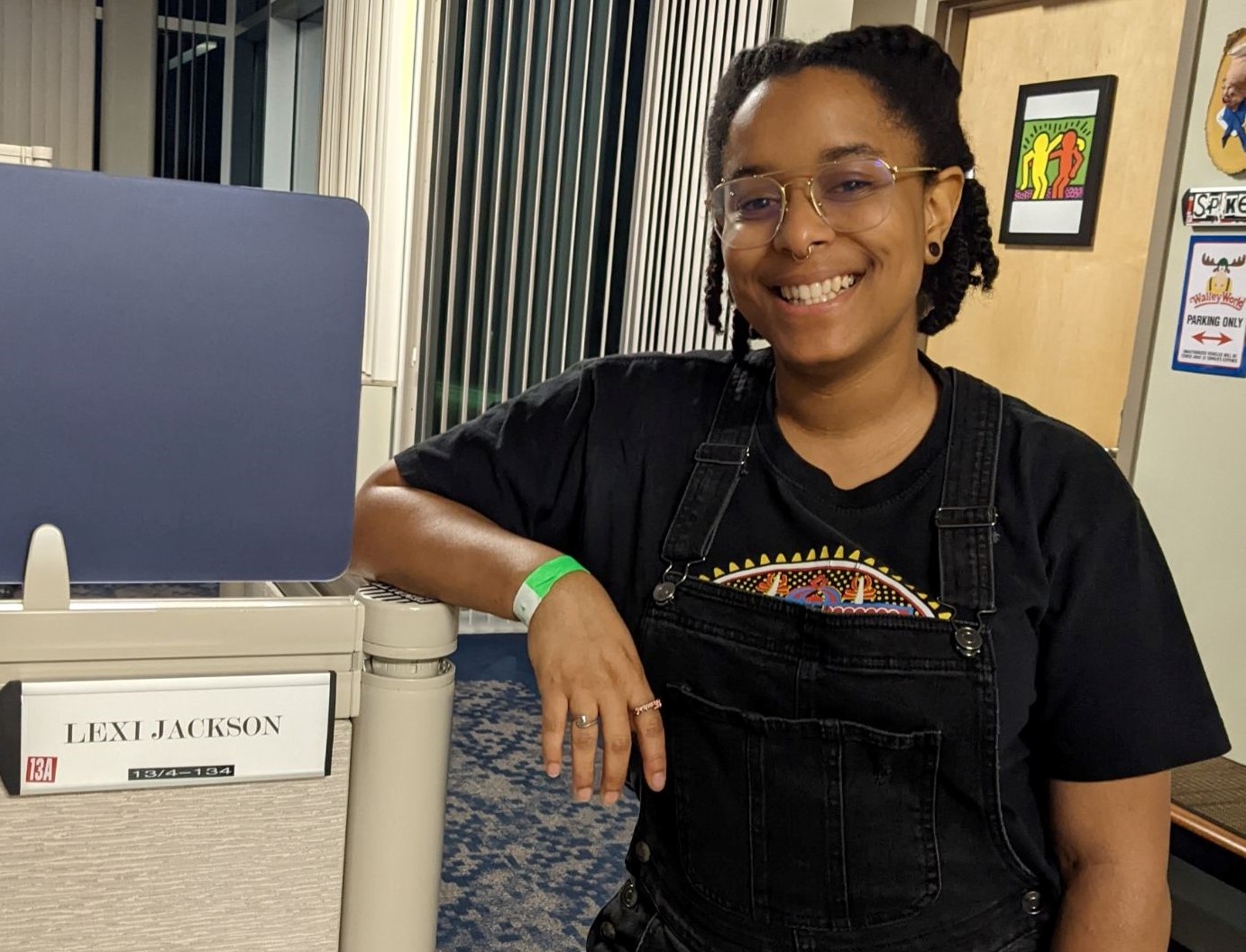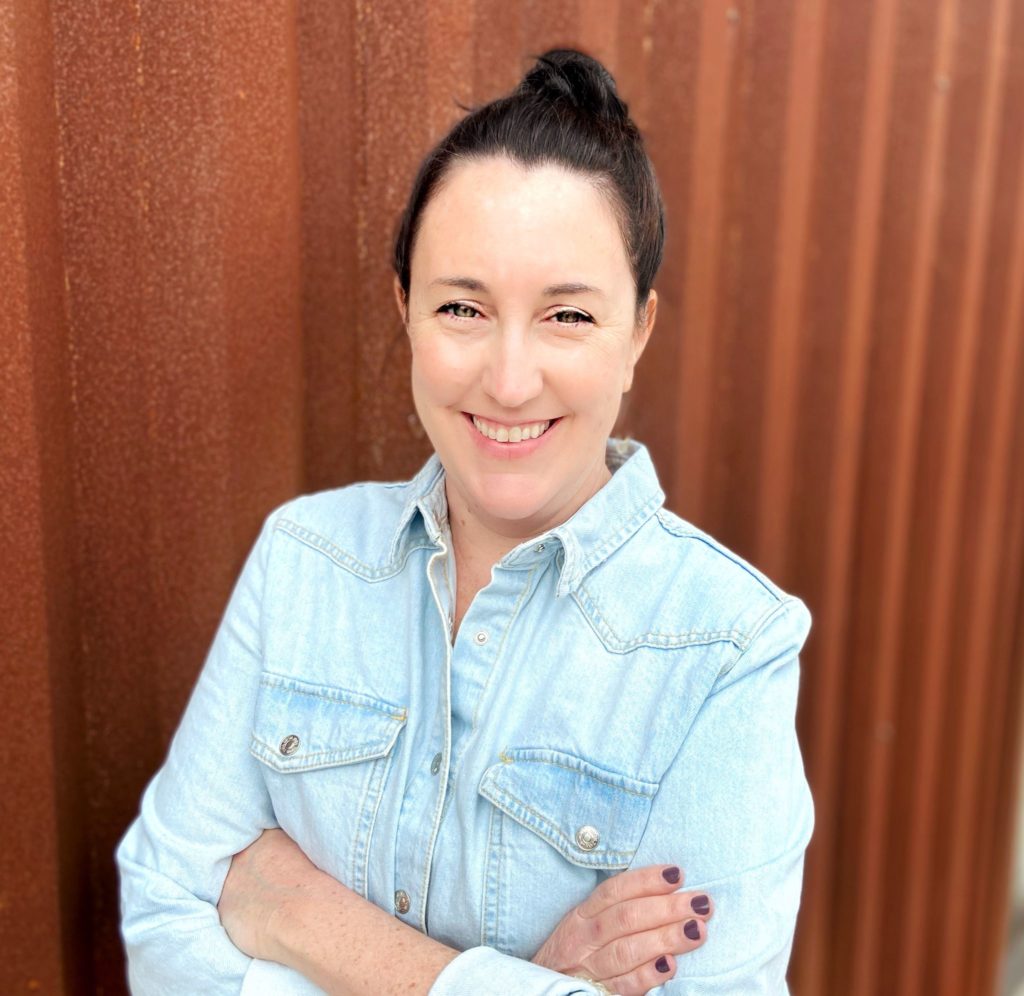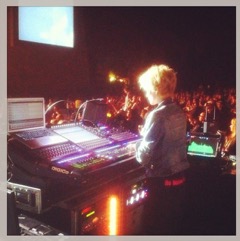Lexi Jackson is one of the most inspiring, generous, and vibrant musicians/audio people I’ve befriended online. She not only writes and produces music as eye.elle and creates playlists to feature other artists, but she is also forging a career in music licensing. After obtaining a certificate in Music Production at the Community College of Baltimore County in 2021, and interning at both Maryland Public Television’s Content Department and Women’s Audio Mission, she began work at The Sync Center. She has since landed a job as a Music Licensing Assistant at ESPN.
Lexi answered the following questions via email.
Tell us about your audio education. What program or educational experience played the greatest role in forming you into the artist and professional you are today?
Well, let me just say, I got my degree in Sociology, but I knew I wanted to go a more creative and musical route. The problem was, I didn’t know how. I’d decided I wanted to work in Music Supervision, but needed to find a way to transition my career. I came across a Music Production and Audio Recording Certificate program at a local college and that helped me tremendously! I had always been musical, and had even written lyrics to songs, but never knew the specifics about production. With this program, I learned exactly that and broadened my horizons to various opportunities in the future. One, in particular, helped to expose me to so many different types of people and opportunities that I don’t think I would have found otherwise: an internship with an amazing organization called Women’s Audio Mission. Right in the thick of COVID, I suddenly had this once-in-a-lifetime opportunity to challenge myself creatively, and I met some of the best people because of it.
What was the last song you released and in what ways was it a departure from others you’ve recorded?
Wow, I love this question. The last song I released was a song called “You Never Know,” and it features an artist named Ivory James. I actually met him through a friend I made in my WAM cohort. He and I worked on something as a part of our mutual friends’ WAM Final Project, and knew we had to work on something together! I created a Collaboration Form to find collaborators around the world to work with, and he filled one out. When the time came, I had lyrics written (which later became the hooks of the song) and all we needed were the verses. This song was definitely different because, not only did we work with an unfamiliar song structure, but we also took a bit more of a divide-and-conquer approach. In most songs, the chorus repeats. I wanted the choruses to be a bit more ambiguous and hard to find — after all, the song is called “You Never Know.” On top of that, we wanted to tell a continuous story to really hone in on the emotion and uncertainty that often comes with change or during a transitional period. It was an incredibly important song for me and my growth both as an artist and a person. Ivory James was able to come in, capture the vibe, and make it his own. The end result was one of my most streamed songs to date, and I couldn’t be more proud of us.
You work for the ESPN Music Licensing Department and are well versed in the world of sync licensing. Tell us a bit about sync licensing. What do you wish others knew about it?
I’m not gonna lie, understanding the world of sync can be tricky. There are so many ins and outs (audio pun intended) and it’s easy to get lost in the weeds when doing your research. The easiest way to explain it for me has always been to think of music for what it is: a product. With products, there is always an owner of that product. If you want to use someone else’s product you have to ask their permission, otherwise you’re stealing — which I’m sure we all can agree is bad. Sync licensing is pretty much the process of securing the rights to use music when marrying it to picture, and paying the necessary fees associated with its use. The first thing I wish people understood more, though, is the fact that music should indeed be paid for when using it in projects. Musicians, artists, and producers aren’t just creating art for their enjoyment: In most cases, it’s how they make a living. Pay them. The second thing I need people to understand is how important clarifying your splits is BEFORE submitting your music to any music libraries or music supervisors. We literally don’t have time for split disputes and we will move on.
What are some of your favorite plug-ins? Favorite gear?
To be honest, I’m not the biggest plug-in junkie. I’m too indecisive to choose. I stick with the stock plugins in ProTools mostly, but I’m definitely ready for something new. Got any suggestions? Lay ‘em on me!
What first got you interested in the world of audio?
I’ve always loved music. The power that it has to evoke so many different emotions has always been so incredibly beautiful and inspiring to me. There’s nothing else like it. I played instruments and sang all throughout school, but I knew I wanted to do more than just play what my band directors put in front of me. I wanted to be the one making the songs. In doing so, I still wanted a bit more. I wanted a way to share it. The desire to push myself past my limits is what got me interested in audio. It was a bit of a slow start considering I was too shy to try it out in high school. It was such a stereotypically masculine gig, I felt almost wrong for wanting to try it and I had no support to help me learn. Despite this, the music itch continued and I knew I couldn’t sit back and wait for someone to teach me; I’d have to start learning myself. I learned a little, then found a great certificate program that helped fill in the gaps. As much as I learned in that program, I’m still learning. There are always new ways to do things and cooler methods to try, so it’s a constant grind, but it’s a fun one when you get to make something really special as a result.
What goals do you have for yourself in the coming year?
My biggest goal, personally, is to be patient with myself and have self-compassion as I journey through this transition I’m embarking on. I’m working at a new job, and will soon be moving to a new state. I’ve never lived that far from home before, so there’s a lot of change for sure, but every day I get a little more excited and sure that everything is going to work out. Creatively, my biggest goal is to release an album. So far, I’ve only released EPs. I’ve been really learning to be patient through life in the last few months, and I think that same patience has shifted to my music. I’m taking my time to get inspired and I’m letting the music flow, as opposed to completing tracks by a self-imposed deadline like I have in the past. I’ve been working on new music, but the fun part is I haven’t been as open and social about it. I really want to surprise everyone with what it turns into. It’s some of my best work so far, and I’m really excited to share it with everyone when it’s ready, but I’m not rushing it.
What is the piece of advice you have received that stands out to you most, either for how great it was or how misguided?
Growing up, especially as a black female, I was often instructed to lay low or keep my head down. Though it was the advice provided with the best of intentions, it definitely stunted how I viewed myself and what I was capable of. It also prevented me from really going for the things I wanted. At some point, I realized just how uncomfortable it was for me to live like that. From a very young age, I always dared to be different. The world tried to strip that part of me, but no matter what, it always found a way to creep back in. Remembering who I am has always been a source of great strength for me. In fact, “Remember who I am,” is what I use to this day to get me through hard times. Music helps me to remember. Whether it’s listening to it or creating it, it’s medicine for the soul for sure.
What advice would you pass on to someone hoping to follow in your footsteps as an audio professional?
Perfectionism is the biggest enemy of creativity. Please know that in anything you do, the first step is to simply begin. That’s it. Get started. Waiting until you know everything, or can do the thing perfectly, is futile and will only hold you back. The sooner you can learn to catch yourself in those moments and act against those beliefs, the better off you’ll be. Learning to have fun and be okay with not knowing things right away is how you grow. Embrace that growth.
Thank you, Lexi.



